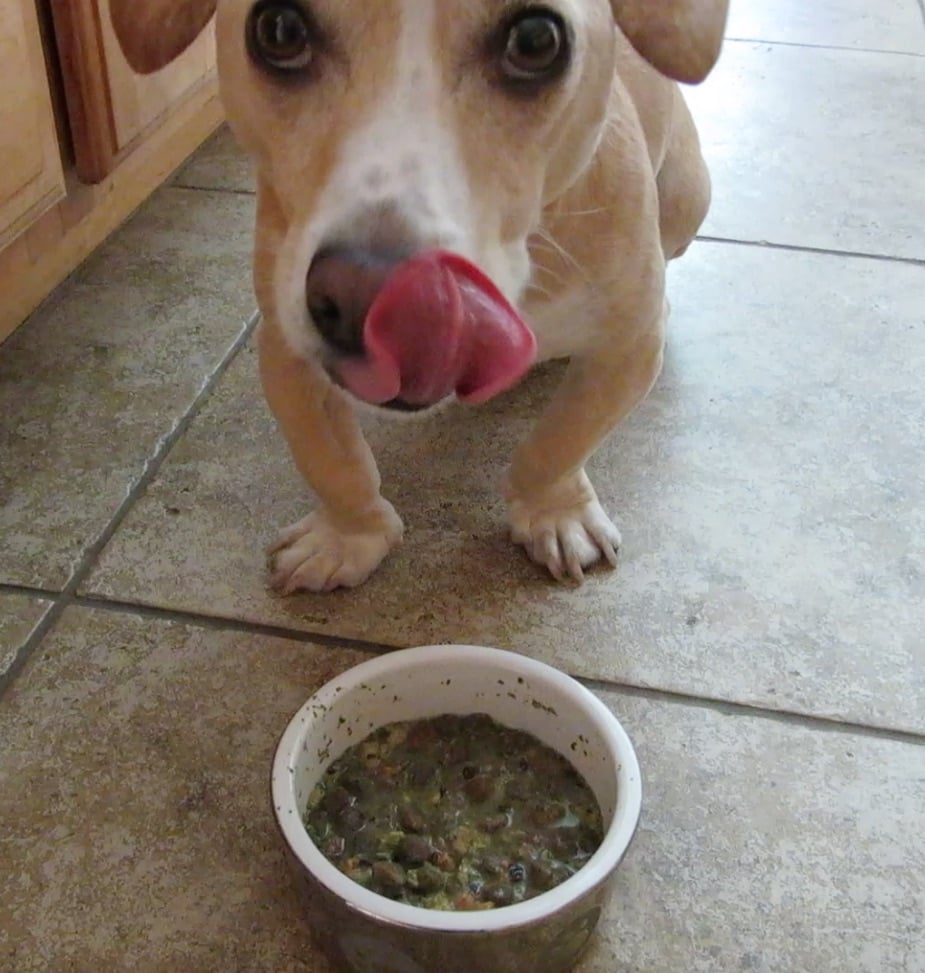- Not a substitute for professional veterinary help.
You may have seen the recent headlines about dog food and its link with heart disease in dogs. These news reports have been quite alarming and it’s understandable for pet parents to have serious concerns about what’s safe to feed our dogs.
Based on the most recent report by the Food and Drug Administration (FDA), specific dog food brands have been named in their connection with heart disease in specific dog breeds. In this guide, we will answer pertinent questions on this topic and go over all the important information from this report so that you can find out how to keep your pet safe.
What’s the issue?
- Pixabay
Since 2014, the FDA has received 515 case reports of dogs diagnosed with Dilated Cardiomyopathy or DCM. DCM is a serious life-threatening heart disease that occurs when the muscular walls of the heart become thinned and weakened to the point of heart enlargement or dilation. This prevents blood from pumping normally through the body and leads to congestive heart failure.
How DCM develops is not fully understood, but some dogs are genetically predisposed to it (e.g. Doberman Pinschers and Boxers), while others appear to be developing it from their diet (e.g. Golden Retrievers). When it comes to the diet-associated DCM, a deficiency in Taurine has been linked to DCM in some dogs while in others, this is not always the case.
Taurine is an amino acid found mainly in meat sources and is a nutrient important in supporting a healthy heart. There’s still more research needed to figure out if a Taurine deficiency is the main issue with the recent uptick in DCM cases because Taurine levels are not always low when this disease is diagnosed.
Which dog food diets may be linked to DCM?
Boutique, Exotic, and Grain-Free diets, also known as BEG diets, a term invented by Dr. Lisa Freeman, a veterinary nutritionist at Tufts University, are those that include exotic meats like kangaroo, duck, venison, or lamb. These diets are often limited in ingredients and have carbohydrates such as potatoes or legumes. Many of these diets lack corn, wheat, beef, and chicken. The reason exotic meats are a potential link to heart disease in dogs is that there isn’t enough information about the nutritional adequacy of these meats as protein sources.
Vegetarian, vegan, and home-prepared diets are also ones that have been linked to heart disease in dogs because of their low meat and nutritional profile. These diets either don’t contain meat/meat by-products (vegetarian), contain no animal-based products including meat (vegan), or are cooked and prepared at home using a limited amount of ingredients.
The FDA report found that certain ingredients found in mostly dry BEG dog food were commonly linked to DCM: 90% of diets were “grain-free” and 93% had peas and/or lentils. You can find the diets named most frequently in the reported cases reported to the FDA here.
What breeds are developing DCM from BEG diets?
Golden Retrievers had the highest reported cases for breeds that are affected by DCM related to diet, according to a recent study and case reports. Male large and giant breeds follow in this ranking to include Labrador Retrievers, Great Danes, and Pit Bulls, however, many other breeds, ranging in different ages, weights, and sizes also have reported cases of DCM in connection with BEG diets.
Why is this occurring?
The rise in popularity of the BEG, vegetarian, vegan, and home-prepared diets during the past 10 years is related to marketing targeting consumers who want their pets eating habits to resemble their own (ex. keto, gluten-free); which look a lot like the BEG diets.
These foods are often attractive to owners because they’re made in smaller batches, appear customized to their individual pet’s needs, or seem more suited to the lifestyle the owner may want for their pet. Many owners also attribute their pet’s good health to these types of diets because they were originally used in an attempt to treat or prevent their dog’s allergies. However, with a change in diet comes a change in nutrient profile and digestibility.
Pet foods are required to be nutritionally balanced and complete which is evidenced by a statement by the AAFCO on the label. Those that are only meant for supplementation or intermittent feeding have a special label that will inform the consumer. However, all diets do not guarantee full nutrient absorption and bioavailability of ingredients because some nutrients interact with others and digest differently. This is what could be happening in the cases of diet-associated DCM.
How should you respond?
It’s advised to make an appointment to talk to your vet. Ask the following questions:
- I’m currently feeding my dog a grain-free diet—can I have her screened for DCM?
- Do you recommend we test my dog’s whole blood and plasma Taurine levels?
- If/when we get the results how will we know if they’re low for his or her breed?
- Do you recommend supplementing the diet (take a picture of the bag label and ingredients), if so with what?
- I’m concerned my dog’s allergies/vomiting/ diarrhea/ear infections/(state problem) will return if we switch diets. What do you recommend to prevent or manage that?
- Did you notice anything on your full physical exam that would indicate heart disease?
- If you didn’t notice anything, do you think we should still do an echocardiogram (ultrasound of the heart) to be safe?
If your dog is showing signs of possible DCM or another heart disease which includes a cough, exercise intolerance, difficulty breathing, collapsing/fainting episodes, or decreased energy, contact your vet as soon as possible. DCM has shown to be reversible with a change in diet and supplementation in some cases (Freeman et al, 2018).
If you’re thinking about switching dog food, introduce it gradually and choose food that has meat as the first ingredient with grains contained in the diet. Look at nutritional labels but be mindful that the ingredients aren’ required to be listed the same as human food.
Veterinary nutritionists recommend you buy pet foods from big companies with long track records so that if there is a problem it will come to light quickly. You can always consult a board-certified veterinary nutritionist to make the best recommendations for your pet.
You can report any information you have about pet food on “How to Report a Pet Food Complaint“.
So, should you be worried about giving your dog a grain-free or other type of BEG diet? Unfortunately, the answer is: maybe. We need more information to know how to properly feed our pets so that we’re meeting their unique needs while also giving them all of the nutrition they need. Your best bet is to talk to your vet about your dog’s specific health requirements.
For more information from veterinary recommended websites about pet food:








